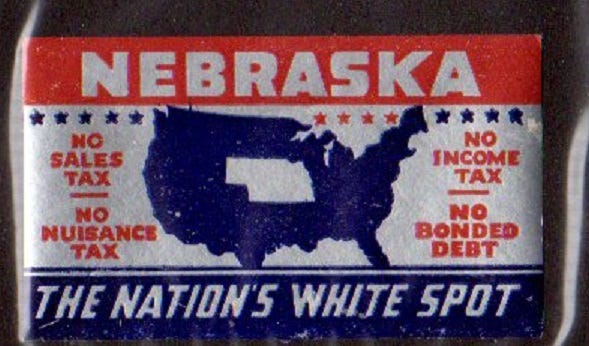Property taxes are the most hated and least understood tax. A radio ad on KFAB claims a candidate did not pay his taxes, but I know he did, and he paid the taxes with interest. If you do not pay your property taxes, interest will accumulate on the debt and you will have to pay more. Over time, if you still do not pay, the County Treasurer will put a lien on your property. If you still do not pay, the lien will be sold for the amount of back taxes. Now you have to pay the owner of your lien, plus interest, and if you still do not pay, the owner of the lien can go to court and take your property! (https://www.dctreasurer.org/property-tax/private-tax-lien-sale) (Scroll through this: https://www.dctreasurer.org/images/pdf/2022_Private_Tax_Sale_Listing.pdf)
Add to this, Nebraska has among the highest property taxes in the USA. This means homes are more vulnerable to such liens as home owners have more difficulty paying the high property taxes. (https://taxfoundation.org/high-state-property-taxes-2021/#)
Investors (or should I say land predators?) are attracted to buy such liens. A casual search of the internet brought up an abundance of information. Listings for liens and investing advice can easily be found. See links below:
https://www.taxliens.com/homes/omaha-ne/
https://www.fortunebuilders.com/tax-lien-investing/
https://www.thebalance.com/should-you-invest-in-tax-liens-4588329
Pacific Legal Foundation has taken issue with the practice because the investors end up with a large windfall in taking property over minor tax delinquencies. The issue is the Eighth Amendment of the Constitution against fines. The confiscation of property is a severe punishment for not paying the tax. They have made this topic a top concern for their organization. On the map at https://pacificlegal.org/home-equity-theft/ Nebraska is deeply into equity theft. Overlapping this with the Tax Foundation map at link above, Nebraska as well as Illinois and New Jersey are ripe for home equity theft due to high taxation. Nebraska’s equity theft is so bad, it has led to lawsuits and outrage.
(https://pacificlegal.org/case/hbi-llc-v-barnette/)
(https://omaha.com/state-and-regional/legal-ripoff-nebraska-makes-it-easier-for-investors-to-take-farms-homes-for-unpaid-taxes/article_00777ae3-f354-5172-8a8d-629c7614be29.html)
How did Nebraska get into this situation? It has to do with a culture of land investing going all the way back to 1853 as homesteads began to be made when the vast majority of people were engaged in farming. NP Dodge is proud of this history. (https://www.npdodge.com/history/) Nebraska US Senators are well aware of the history of homesteading. (https://www.sasse.senate.gov/public/index.cfm/2019/6/sasse-fischer-introduce-legislation-to-rename-homestead-national-monument) (https://www.nps.gov/home/learn/historyculture/index.htm)
At the beginning, property taxes slowed the growth of government. However, as the government grew, the property taxes went up, and people demanded relief. The State income tax and the sales tax came into being, yet the property taxes still went up. Here is an image of Nebraska's past.
At some time, taxes had a color code. White taxes were a matter of documentation and deeds: property taxes. Brown taxes are transition taxes we see but involve little to no documentation: sales taxes for example. Red taxes are taxes which directly tax you for being you; poll taxes. Since Nebraska had only a property tax and no bonds, the government was very small. The first breakage in this system started with tax bonds which allowed government entities to grow.
From Brad Ashford to Richard Pahls, as State Senators, they tried to make changes but the taxation systems became more archaic and government grew. Our public education system is now expensive and puts out a mediocre product. Our counties do not determine the amount of the fees they collect and so are dependent on property taxes. Not even Mayor Stothert has been able to slow the growth of government. In a digital economy, cottage industries have blossomed yet property taxes become a severe impediment. Home equity theft and rising property taxes are a threat to the new economy.




